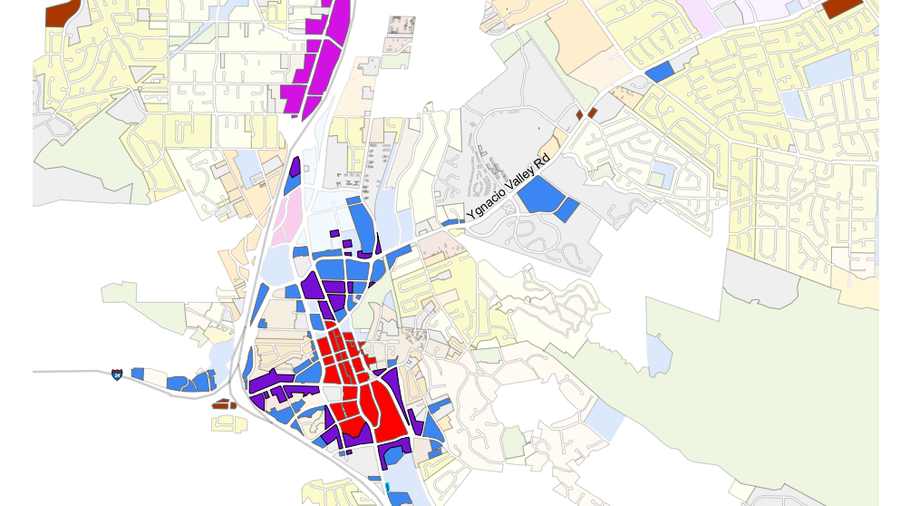The Walnut Creek City Council voted Tuesday to reject a housing moratorium that would have frozen approvals for new residential projects in commercially zoned districts in the city for 45 days.
It was the third Bay Area residential moratorium proposal in the past month, with Emeryville narrowly rejecting a measure in February and San Francisco's Mission neighborhood also studying one.
Three of the five City Council members voted against the moratorium. At least four yes votes were needed to pass the moratorium, which could have been extended once by up to 22 months and a second time for 15 days.
The moratorium was proposed to prevent housing projects that seek conditional use permits to build on commercially zoned land. The City Council voted instead to seek to amend the City's General Plan to restrict such development. Around 700 residential units in commercial districts are under construction, approved or under review, according to the city.
No currently proposed projects would have been affected by the moratorium under proposed exemptions, said Sandra Meyer, Walnut Creek's community development director, prior to the vote. "This is really a moratorium on the conversion of commercial land," said Meyer. "We need to preserve our commercial areas in order to have the quality of life that the current and future residents want to maintain."
Walnut Creek, Emeryville and San Francisco's proposed moratoriums underscore how local city governments are struggling to find ways to deal with surging housing costs. All three communities have explored moratoriums, in part, because of community concerns over excessive residential development, particularly luxury housing.
However, moratoriums are imperfect instruments for dealing with overbuilding, said David Blackwell, a partner who specializes in land use at law firm Allen Matkins. "Cities rely on these without recognizing in order to adopt these, there needs to be a true urgency and evidence of a significant adverse impact," said Blackwell. "An urgency ordinance isn't always the best way to go."
"It's not always that easy to demonstrate that there's a real harm being faced here," said Blackwell. "Cities feel there's something getting beyond their control. Essentially they want to hit the pause button."
A proposed moratorium could also discourage developers from building in a city in the future, due to lingering uncertainty surrounding the development process.
"Walnut Creek has a good reputation as far as development goes," said Blackwell. "Cities need to be careful — it's a pretty draconian approach when you do a moratorium. That does make that jurisdiction less attractive for developers."
Walnut Creek's draft moratorium stated that developing residential projects in commercial zoning districts "poses a current and immediate threat to the public health, safety, and welfare, since such uses will result in the continued permanent loss of scarce land already deemed suitable for commercial development." Retail and office development is "integral to the City's continued economic and fiscal vitality," according to the draft moratorium.
City planners are reviewing three large projects. They include a 12-unit proposal at 1950 and 1962 Trinity Ave., a 27-unit project called Center Place South at 1271 S. California Blvd. and 127 multifamily units on the site of a former McDonald's restaurant at 1380 N. California Blvd.
Local developers were concerned about the proposed moratorium.
Jeff Neustadt, president of Walnut Creek-based Portfolio Development Partners, said he only heard about the proposed moratorium on Monday and had not received any correspondence from the city. He said he planned to attend the meeting and speak against the measure.
"I don't believe in what they're doing fundamentally," said Neustadt. "I don't think that's the solution for Walnut Creek."



